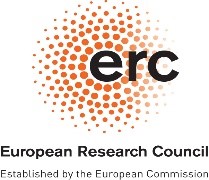Received:
2023-11-15 | Accepted:
2024-03-04 | Published:
2024-03-30
Title
The acceptance of sustainable e-commerce by small and medium-sized enterprises: a case of Vietnam
Abstract
E-commerce has been adopted by businesses and consumers in Vietnam for consumption activities, profit-seeking, buying and selling goods, conducting business, competing, and expanding markets. Businesses have chosen e-commerce due to its benefits, the trend of applying digital technology, and the ongoing modern business environment. Many studies have identified factors influencing the acceptance of e-commerce, but only some studies have approached sustainable e-commerce. Developing sustainable e-commerce requires businesses to invest more money and technology in business processes, which consumers may only sometimes accept. This article applies the TOE framework to identify factors influencing the acceptance of sustainable e-commerce by measuring the importance coefficient of these factors. The research results reflect changes in the factors affecting the acceptance of sustainable e-commerce. The study also provides recommendations for stakeholders involved in developing sustainable e-commerce.
Keywords
sustainable e-commerce, Technology-Organization-Environment (TOE) framework, influencing factors
JEL classifications
O33
URI
http://jssidoi.org/ird/article/155
DOI
Pages
46-58
Funding
This is an open access issue and all published articles are licensed under a
Creative Commons Attribution 4.0 International License
References
Abed, S. (2020). Social commerce adoption using TOE framework: An empirical investigation of Saudi Arabian SMEs. International Journal of Information Management, 53(6) 102118. https://doi.org/10.1016/j.ijinfomgt.2020.102118
Search via ReFindit
Al Zoubi, I. S., & Al Zoubi, I. A. (2019). An Investigation of Factors affecting E-Marketing Customers’ Behavioral intention to use Telecommunication industry in Jordan. International Journal of Marketing Studies, 11(3). https://doi.org/10.5539/ijms.v11n3p125
Search via ReFindit
Alraja et al. (2020). Does Facebook commerce enhance SMEs performance? A structural equation analysis of Omani SMEs. SAGE Open, 10(1), 2158244019900186. https://doi.org/10.1177/2158244019900186
Search via ReFindit
Davis, F. D. (1989). Perceived usefulness, perceived ease of use, and user acceptance of information technology. MIS Quarterly, 13(3), 319-340. https://doi.org/10.2307/249008
Search via ReFindit
DHL. (2021). The Environmental Sustainability of E-Commerce. COA: DHL White Paper.
Search via ReFindit
Fedorko, I., Bacik, R., Gavurova, B., & Fedorko, R. (2021). Social media in the context of technology acceptance model. Entrepreneurship and Sustainability Issues, 9(1), 519-528. http://doi.org/10.9770/jesi.2021.9.1(32)
Search via ReFindit
Ingaldi, M., & Ulewicz, R. (2019). How to Make E-Commerce More Successful by Use of by Use of Kano’s Model to Assess Customer Satisfaction in Terms of Sustainable Development. Sustainability, 11(18), 4830. https://doi.org/10.3390/su11184830
Search via ReFindit
Laudon, K.C., & Traver, C.G. (2014). E-commerce: Business. Technology Society. London, UK: Pearson Education International, ISBN 0136006450.
Search via ReFindit
Oláh, J., Kitukutha, N., Haddad, H., Pakurár, M., Máté, D., & Popp, J. (2019). Achieving Sustainable E-Commerce in Environmental, Social and Economic Dimensions by Taking Possible Trade-Offs. Sustainability, 1-22. https://doi.org/10.3390/su11010089
Search via ReFindit
Pazaitis, A., Kostakis, V., & Bauwens, M. (2017). Digital economy and the rise of open cooperativism: the case of the Enspiral Network. Transfer: European Review of Labour and Research, 23(2), 177-192. https://doi.org/10.1177/1024258916683865
Search via ReFindit
Qiao, Y. (2011). Instertate Fiscal Disparities in America, New York: Routledge.
Search via ReFindit
Raghavan, R. (2022). What is Sustainable eCommerce and Why Should Every Business Adopt It? Accessed from https://acowebs.com/sustainable-ecommerce
Search via ReFindit
Rahayu, R., & Day, J. (2015). Determinant Factors of E-commerce Adoption by SMEs in Developing Country: Evidence from Indonesia.Procedia - Social and Behavioral Sciences 195(5), 142-150. https://doi.org/10.1016/j.sbspro.2015.06.423
Search via ReFindit
Ramdansyah, A.D. & Taufik, H.E.R. (2017). Adoption Model of E-Commerce from SMEs Perspective in. European Research Studies Journal, 227-243. https://doi.org/10.35808/ersj/887
Search via ReFindit
Rawash, H.N. (2021). E-commerce Adopting TOE Model by SMEs in Jordan. Multicultural Education, 7(3). https://doi.org/10.5281/zenodo.4598098
Search via ReFindit
Rogers, E.M. (1983). Diffusion of Innovations, Free Press, New York
Search via ReFindit
Sun, M., Grondys, K., Hajiyev, N., & Zhukov, P. (2021). Improving the E-Commerce Business Model in a. Sustainability, 22. https://doi.org/10.3390/su132212667
Search via ReFindit
Tornatzky, L. & Fleischer, M. (1990). The process of technology innovation, Lexington, MA. Lexington Books.
Search via ReFindit
UN. (1987). Our common future. Oxford: Oxford University Press.
Search via ReFindit
Venkatesh, V., Morris, M. G., Davis, G. B., & Davis, F. D. (2003). User Acceptance of Information Technology: Toward a Unified View. MIS Quarterly, 27(3), 425-478. https://doi.org/10.2307/30036540
Search via ReFindit
Virstiuk, A. (2022, April 15). Accessed from https://gepard.io https://gepard.io/ecommerce-strategy/sustainable-ecommerce
Search via ReFindit
Ziaran, P., Fedorko, R., Gavurova, B., Bacik, R. (2021). Motivational factors at work of e-commerce and e-business employees. What is the difference between genders?. Entrepreneurship and Sustainability Issues, 9(1), 23-36. http://doi.org/10.9770/jesi.2021.9.1(2)
Search via ReFindit
Сherednichenko, O., Ivashchenko, O., Lincenyi, M., & Kováč, M. (2023). Information technology for intellectual analysis of item descriptions in e-commerce. Entrepreneurship and Sustainability Issues, 11(1), 178-190. http://doi.org/10.9770/jesi.2023.11.1(10)
Search via ReFindit












 RSS 1.0
RSS 1.0